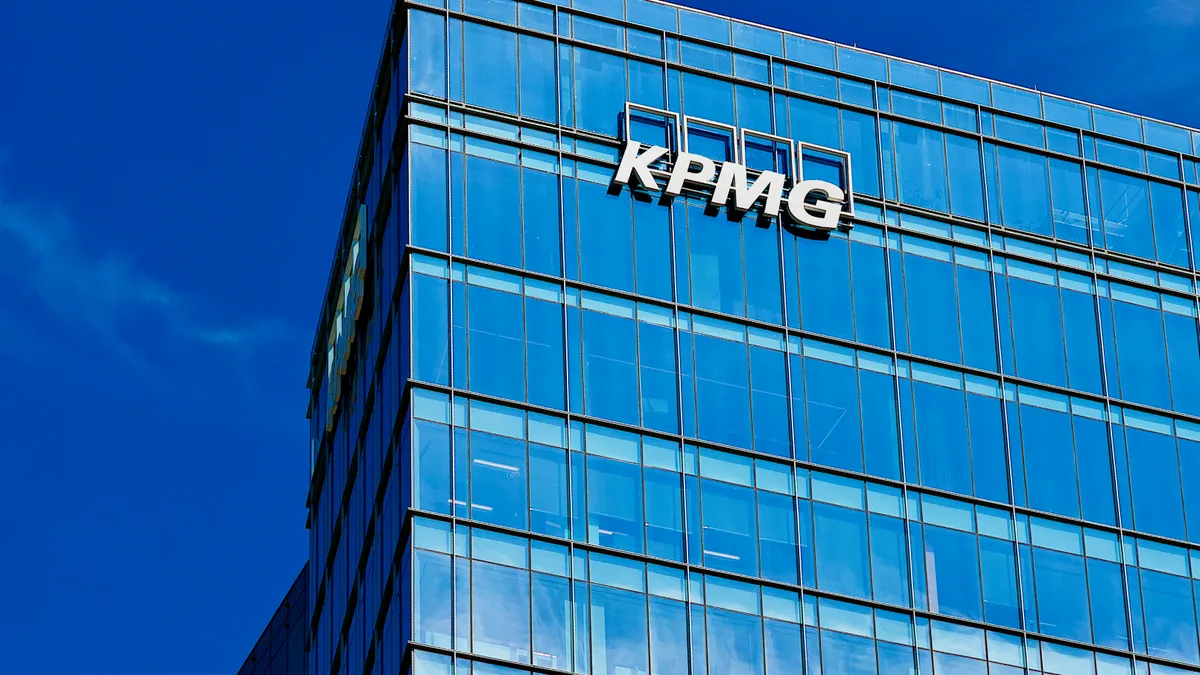Stuart Fuller, global head of legal services at KPMG International, said he’s convinced generative AI will transform the legal profession.
As a result, KPMG legal professionals are infusing the latest AI into their own work and the services they provide clients.
“We either embrace the change or we let the change happen to us,” Fuller told Legal Dive. “And the better way to manage your own outcomes is to embrace the change and welcome it with open arms.”
KPMG’s embrace of AI includes hosting joint workshops with Microsoft for clients to help legal departments across the globe effectively use the emerging technology.
The companies’ legal services-focused collaboration builds on a joint commitment to AI innovation KPMG and Microsoft announced earlier this year.
“We have a real opportunity to apply this next generation of AI to help transform every industry, including professional services,” said Microsoft Chairman and CEO Satya Nadella in a prepared statement.
Workshop format
Client workshops with Microsoft for KPMG’s top 30 clients will begin in the new year, Fuller said.

In addition to the KPMG Law and Microsoft teams, the sessions will feature the client’s general counsel and other members of their legal department. This will likely include the legal function’s transformation team.
There are 12 modules related to AI the client can choose from, including advanced prompt engineering with worked examples.
The AI modules also include how to get the most from Microsoft 365 Copilot in a legal setting and how to prepare your business given the importance of data and security with AI. Some of the modules are led by KPMG Law and some are led by Microsoft.
Fuller said the core deliverable of the workshops is helping clients “to crystallize the proofs of concept or the use cases that they want to develop internally.”
APAC session
Fuller said he participated in a joint KPMG-Microsoft workshop in Australia as part of the rollout in the Asia-Pacific region.
The client, which was a bank, was asked to develop a list of potential AI use cases beforehand. Fuller said they began the session with roughly 25.
The Microsoft team then identified the use cases that Copilot could handle on its own, leaving the client with a dozen left.
The remaining use cases were then the focus of substantive discussion and ultimately reduced to three proofs of concept the client could move ahead with, Fuller said.
“I think the thing that made a big difference was Microsoft being able to say immediately, ‘Copilot will solve that use case,’” Fuller said. “That allows you to sort the wheat from the chaff.”
Likely use cases
Fuller said there are a variety of use cases that Microsoft’s AI-powered products can support for legal departments.
For example, an in-house team could use the technology to make sure the contracts and liabilities the organization takes on are within the company’s risk frameworks.
A legal department could create a knowledge management database and use generative AI to comb through it to ensure the legal team is giving fast and accurate advice.
Additionally, the legal function could use the latest AI for regulatory horizon mapping and to create documents.
“It’s a little like legal managed services powered by generative AI,” Fuller said.
KPMG’s AI use
Meanwhile, Microsoft will also be providing AI-focused training for KPMG Law and Global Legal Services’ nearly 4,000 legal professionals in 84 jurisdictions.
Fuller said these training sessions starting in early 2024 will help KPMG professionals effectively use Microsoft’s AI-powered products in their own work.
Potential internal generative AI uses include crafting pitchbooks, conducting legal research and compiling first drafts of documents.
KPMG’s legal professionals growing in their knowledge and comfort with emerging AI will also help with the legal advisory and managed services work they perform for clients, Fuller said.
“To advise clients on [generative AI] and the legal and the regulatory issues which might flow from it, you need a deep understanding of what it actually is,” he said.











